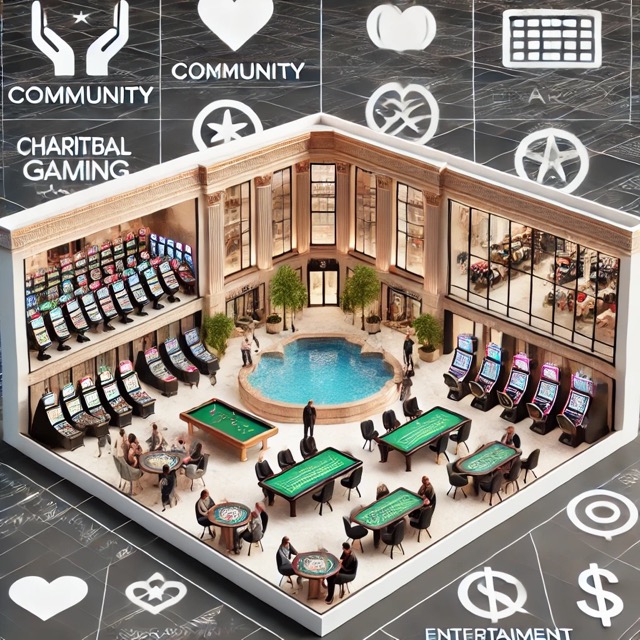
New Hampshire’s gaming landscape is about to undergo a major transformation with the introduction of Live! Casino Salem, a charitable gaming facility set to replace a former Lord & Taylor department store. This development, which is part of a broader trend of repurposing vacant commercial spaces, is not only revitalizing a once-thriving retail location but also offering a new model for how casinos can operate in the state.
Charitable gaming, as practiced in New Hampshire, differs from traditional commercial gambling in that the primary beneficiaries are nonprofit organizations. This model allows gambling while avoiding the moral and political hurdles associated with full-scale casino gambling. The state’s legal framework permits games of chance, such as poker, blackjack, and roulette, but with a twist—the proceeds go to charity. This approach has proven popular, with multiple casinos already operating successfully under this model, and the introduction of Live! Casino Salem is expected to further boost the industry.
What makes this project particularly intriguing is its scale and ambition. The $160 million development will feature a wide array of amenities, including a 60,000-square-foot gaming floor, an event center, and various dining options. In addition, the facility will offer over 900 historical horse racing machines and more than 40 betting tables, making it one of the largest gaming establishments in the state. The developers estimate that the casino will generate over $31 million annually in gaming tax revenue and contribute more than $120 million to local charities over the next decade.
The rise of charitable gaming in New Hampshire presents an interesting alternative to traditional gambling models, particularly as other states grapple with the moral and economic implications of expanding their gaming industries. By framing gaming as a socially responsible activity that directly benefits local communities, the state has found a way to make gambling palatable to a broader audience. This, in turn, has allowed New Hampshire to capitalize on the revenue-generating potential of gaming without the political baggage that often accompanies it.
As malls across the country struggle to stay relevant in the face of changing consumer habits, projects like Live! Casino Salem offer a glimpse into how these spaces can be reimagined. By combining entertainment, dining, and charitable gaming, the development is poised to become a destination in its own right, attracting visitors from across the region and injecting new life into a struggling retail landscape.








